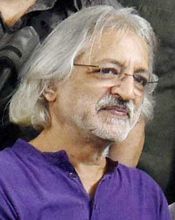
I AM not disappointed with this government, as I had no expectations from it. What disappointed me was that over 31 per cent eligible Indians voted for it. They brought to power an extremely narrow-minded ideology that contradicted the ethos of those who had fought for India’s freedom. The fountainheads of this ideology, the Hindu Mahasabha and the RSS, had openly allied with the British and had never fought for freedom, barring a few exceptions. Their claim to nationalism is patently bogus. As independence dawned, The Organiser, the RSS mouthpiece, opined that the tricolour was “inauspicious”. Only the saffron flag was dear to them. They demanded that the Constitution be replaced by the Manusmruti. It is this ideology that rules us today.
The problem is that most of the media is controlled by business interests that back the ruling party. The resulting loss of freedom is most acutely felt in the cultural field. Some of the censorship is overt, but much of it is invisible. Administrators whose only qualification is their allegiance to the Modi regime are being foisted on government-controlled institutions. Of course, the most lethal censorship is that of the bullet. Three rationalists—Narendra Dabholkar, Govind Pansare and M.M. Kalburgi—have been shot dead in the past two years. These are the ones we know about. There may be many more who may have been attacked, but did not make it to the headlines.
The rapid rise of an armed lunatic fringe in our society is a real danger. All extreme right-wing groups have risen with the present government. One could argue that they were the invisible B team, whose hate-mongering assisted the political process of capturing power. There is, obviously, a continuity in their ideological makeup, but once in office, their violent language has to be moderated.
Ideas of censorship come easily to a totalitarian mindset. In Maharashtra, the BJP government passed a police circular saying that any criticism of the political leadership can be treated as sedition. Luckily, the High Court issued a stay order on this.
There are many ways in which the government tries to crush dissent—censorship, attacking and killing activists and saffronising appointments to key institutions. After the government appointed Pahlaj Nihalani as censor board chief, he immediately asked for banning 20 “offensive” words from cinema. One of the banned words was ‘Bombay’.
Mukesh Khanna, chairman of the Children’s Film Society, and his friend Gajendra Chauhan, chairman of the Film and Television Institute of India, are followers of controversial godman Asaram Bapu and telemarketers of gem stones and rudrakshas. It appears that the RSS is scraping the bottom of the barrel to appoint semi-qualified people to top positions.
The general public is not directly affected by all this. It is more affected by price rise, loss of land and livelihood, crop failure and mounting debt. This disaffection is hidden by the media. The hype around Modi continues, though he remains silent on all major issues, ranging from the Vyapam scam murders to the right-wing death squads of Maharashtra. All he tends to give are propaganda bytes. But, even the media cannot hide the bad news forever. At some point, everything will become visible.
There are some positives—such as the resistance at FTII and the fight by Chennai’s Ambedkar Periyar Study Circle. There is resistance all over the country, which is not necessarily noticed. You have to look for these positives at the individual level, or the small organisational level, for nothing much is happening on the larger political level. This is the time for the Left and secular parties to unite against the threat of fascism. But we are not seeing such unity emerging.
What will it take?
Patwardhan is an award-winning documentary filmmaker. As told to Swagata Yadavar.




